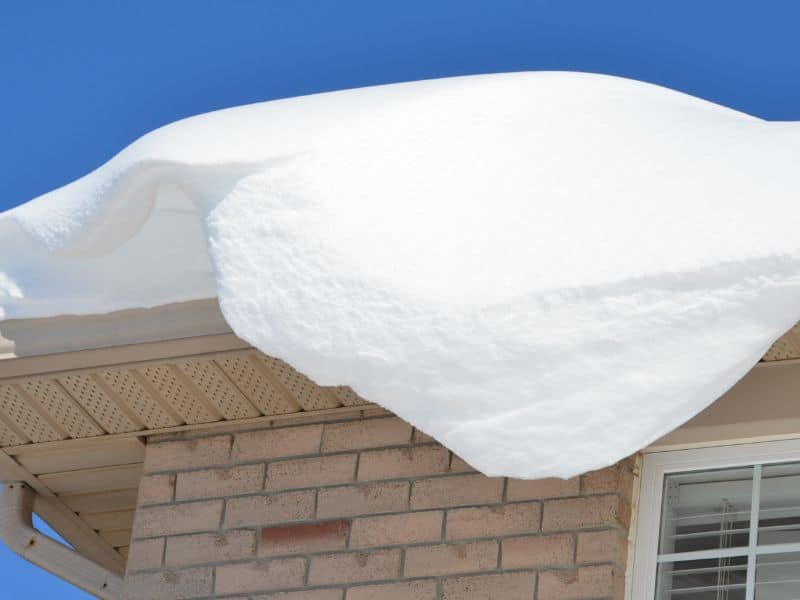As the winter season sets in, it brings a unique set of challenges for your home, with one of the most vulnerable areas being your roof. Winter weather, including snow, ice, freezing temperatures, and fluctuating conditions, can take a toll on your roof’s durability and performance. In this article, we’ll delve into the impact of winter weather on your roof and what you need to know to protect it.
Snow Accumulation
Snow may look picturesque, but it can be surprisingly heavy. The weight of accumulated snow on your roof can stress its structural integrity. Older or weakened roofs are particularly susceptible to damage from heavy snow loads. Regular snow removal may be necessary to prevent excessive stress, but it should be done carefully to avoid causing further damage.
Ice Dams
Ice dams are another common winter roof issue. They occur when heat from your home escapes through the roof, melting the snow on top. The melted snow then refreezes at the eaves, creating a barrier. This ice buildup can lead to water backing up under shingles, causing leaks and damage to your roof’s underlayment and interior spaces.
Freezing and Thawing Cycles
Winter’s constant freezing and thawing cycles can be hard on roofing materials. As water penetrates cracks and crevices, it can freeze, expand, and then thaw when temperatures rise. This cycle can lead to the gradual deterioration of roofing materials, causing them to crack, warp, or become less effective over time.
Condensation
During the winter, the temperature difference between the warm, heated interior of your home and the cold exterior can create condensation in your attic. This moisture can lead to mold growth, wood rot, and damage to your roof’s structural components. Proper attic ventilation and insulation are crucial to managing condensation issues.
Gutter and Downspout Problems
Your gutters and downspouts play a crucial role in directing water away from your roof and foundation. In winter, they can become clogged with ice and debris, leading to water backup and potential roof damage. Regular gutter cleaning and maintenance are essential during the winter months.
Shingle Damage
Roofing materials, especially asphalt shingles, can become brittle in cold weather. The freeze-thaw cycle can cause shingles to crack, warp, or lose their adhesive properties. This compromises their ability to protect your home from water infiltration.
Leaks and Water Damage
Perhaps the most concerning issue during winter is the risk of leaks and water damage. Whether it’s from ice dams, damaged roofing materials, or clogged gutters, water infiltration can lead to costly repairs and compromise the structural integrity of your home.
The Importance of Roof Inspections
Given the potential risks associated with winter weather, regular roof inspections are crucial. A professional inspection can identify any existing issues and help you address them before they worsen. Timely maintenance and repairs can extend the lifespan of your roof and protect your home from damage.
In conclusion, understanding the impact of winter weather on your roof is essential for maintaining a safe and comfortable home. If you have concerns about your roof’s ability to withstand the winter months, consider scheduling a professional inspection. A reputable roofing contractor can identify any vulnerabilities and recommend appropriate measures to ensure your roof’s longevity and performance throughout the winter and beyond.


